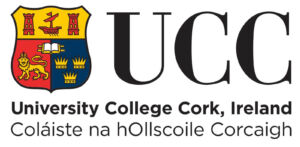MA in Translation Studies
Key Points
The Master of Translation Studies, a member of the European Network of Masters in Translation (EMT) established by the Directorate-General for Translation of the European Commission (EMT network), provides expert training in linguistic and intercultural knowledge and the necessary communication skills to become a professional translator. Drawing on extensive experience in the School of Languages, Literatures and Cultures, the course currently allows you to focus on translating between one or more of the following languages and English: French, Spanish, Italian, Irish, Portuguese, German, Chinese, Japanese, Korean. Through practical language classes, the course develops the high-level linguistic competence necessary to work in a wide range of fields, such as business, commerce, publishing, tourism, and journalism.
In addition, it offers up-to-date training in the research methods and tools used by contemporary translators, providing a comprehensive foundation for future postgraduate research. As well as offering recent language graduates the opportunity to hone their professional language skills, the course is also aimed at practicing translators who want specialized knowledge of advancements in translation studies, translation technology, and language resources. .
Course practices
The Master of Translation Studies course is one year full-time or two years part-time. The taught element (or Part I) takes place on the main UCC campus from September to April. Depending on the language combination you choose, you can expect around 12-15 hours of main contact per week during the school term, with most of the main hours taught between 2 and 6 pm on weekdays. Guided self-study and small group practice will be an important part of practical translation training.
In addition to the taught elements of the course, you are expected to complete a 12,000 to 15,000 word dissertation. The research thesis element of the course (Part II) is supported by individual tutorials.
Why choose this course
The Master of Translation Studies offers state-of-the-art training in all areas necessary to become a professional translator. The main conferences and seminars provide an introduction to contemporary developments in translation theory, different approaches to text analysis, and computer-assisted translation tools, complemented by generic and language-specific research seminars and training modules, which They cover contemporary research methods, up-to-date career guidance, skills to investigate specialized fields, and advanced oral and written presentation skills. The remaining core element of the course is dedicated to weekly practical language classes by specialists, focused on developing professional translation and intercultural communication skills in each of the languages taken in the course.
Career opportunities
Due to its focus on fostering high-level professional communication skills in a variety of different languages, the course will help you develop the linguistic and intercultural competence necessary to work in a wide range of fields, such as business, commerce, publishing, tourism and journalism. He will also receive specific professional training related to translation and interpreting jobs.
Admission Requirements
Applicants must normally have a Second Class Honors Grade I in a primary honors degree (NFQ, Level 8) language or language-related area studies with at least a Second Class Honors Grade 1 in the language / pair pair. language being taken in the Master’s degree or, For students with native proficiency in one / the language mentioned in the branch (s) for which they are applying, they should normally have a primary degree with honors with at least a 2nd class honors degree 1 in a relevant discipline (applied languages, linguistics, philology or another discipline in which they wish to specialize as a translator).
Students with a second class honors degree in a primary honors degree (NFQ, level 8) will be considered, subject to an appropriate test of language proficiency as assessed by the program coordinators. They may also be asked to appear for an interview. Applicants must indicate their specific language combination at the application stage.
Students choosing Irish may be required to take an informal language test before being accepted.
Candidates choosing the Asian Studies stream typically must have a Second Class Honors Grade I in a primary honors degree (NFQ, Level 8) or equivalent in a relevant subject area along with the following practical language qualifications in each of the languages they wish to take as part of the program:
- Chinese language candidates must have a Level 5 HSK (Test of Chinese Proficiency) certificate (or certified equivalent);
- Candidates for the Japanese language must have a level of Japanese equivalent to the Japanese Language Proficiency Test N2;
- Korean language candidates must have the level of Korean equivalent to TOPIK II (Test of Proficiency in Korean), level 5-6.
Applicants who do not meet the normal academic requirements may also be considered under recognition of prior learning (RPL) following a review of their individual qualifications and experience by the course committee. The admission of such applicants will be subject to the approval of the Faculty of Arts, Celtic Studies and Social Sciences.
Requirements English
All graduate applicants whose first language is not English must provide evidence of English language proficiency. Certain tests (eg, IELTS, TOEFL, and Pearson PTE) have a three-year time limit on their validity and will apply. English language tests must be taken no more than three years prior to the start of a program.
Please note that Secure English Language Test (SELT) scores must be obtained in a single session of the corresponding qualification (for example, IELTS and TOEFL). We will not accept a combination of individual component scores from multiple tests.
Applicants who are nationals of a country that, according to the UCC, is predominantly English-speaking, or who have a degree or equivalent qualification that was taught in a country that is considered predominantly English-speaking, will normally be assumed to have met the language requirements of the UCC. However, in some circumstances, applicants may be required to present evidence of an English language qualification to satisfy the college program entry requirements.
Request your quote
An advisor will contact you by phone and email within the following hours


